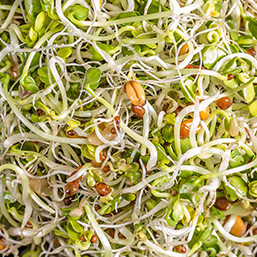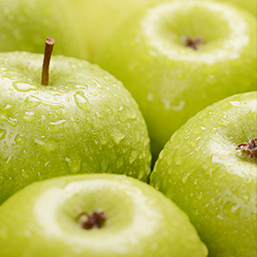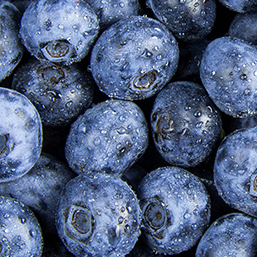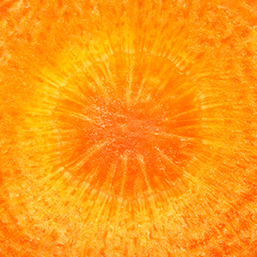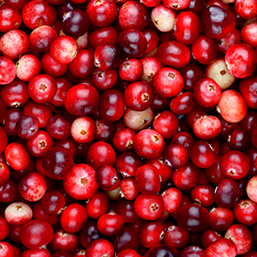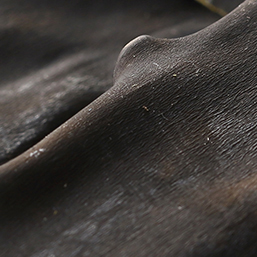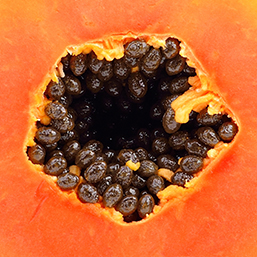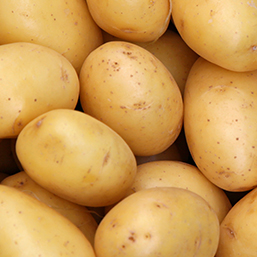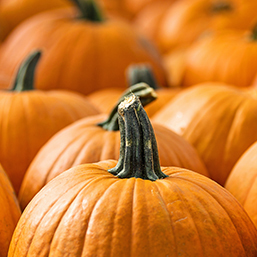Explore The Ingredients
-
Enzymes & Herbs
-
Alpha-Amylase
is a digestive enzyme that helps breakdown starch. This enzyme is sourced from Aspergillus oryzae and Aspergillus niger, and is included at guaranteed levels.
-
Botanicals
are plants chosen for specific health and therapeutic benefits. Certain botanicals like Cinnamon, Fennel and Peppermint are widely known to support a calm and balanced digestive system.
-
Cellulase
is a digestive enzyme that helps breakdown carbohydrates (cellulose) This enzyme is sourced from Aspergillus oryzae and Aspergillus niger, and is included at guaranteed levels.
-
Cinnamon
is a common spice that is also known as a digestive botanical, recognized to support a calm & balanced digestive tract.
-
Fennel
is a spice that contains unique phytonutrients including some flavonoids with antioxidant properties.
-
Green Tea Extract
Used for its antioxidant-rich properties
-
Papaya
is a fiber-rich tropical fruit that is rich in carotenoids, vitamin C and flavonoids. Papaya also contains the enzyme papain, which supports digestion of protein and works with papaya’s fiber to maintain a healthy intestine tract.
-
Peppermint
is a botanical that is recognized to support a calm & balanced digestive tract. This herb is also high in Vitamins C & A and minerals Calcium and Magnesium.
-
Protease
is a digestive enzyme that helps breakdown protein. This enzyme is sourced from Aspergillus oryzae and Aspergillus niger, and is included at guaranteed levels.
-
Rosemary Extract
is a highly effective natural preservative high in antioxidants. Rosemary extract has been shown to improves shelf life and protects against rancidity.
-
Spearmint Extract
has been shown to improves shelf life and protects against rancidity.
-
Yucca Schidigera Extract
Yucca is a desert plant. It is a natural source of digestive aid. It is also known to reduce fecal odor.
-
Alpha-Amylase
-
Prebiotics & Probiotics
-
Beet Pulp
is an excellent fiber source. This prebiotic fiber stimulates the growth of the favorable gut bacteria (probiotics).
-
Lactobacillus Casei
See Live Microorganisms
-
Live Microorganisms
are live, naturally occurring microorganisms (micro-flora) normally found in a healthy digestive tract. Active probiotics like lactic acid or bacillus microorganisms optimize digestion & absorption of vital nutrients. Probiotics are guaranteed to be live & active in all dry recipes.
-
Prebiotics
are a heat resistant type of dietary fiber that stimulates the growth of healthy bacteria in the intestine, and increases immunity to harmful microorganisms. As a food source for the “good bacteria”, prebiotics can work symbiotically with probiotics to promote overall gut-health.
-
Probiotics
See Live Microorganisms
-
Yogurt
is an natural source of protein and calcium that contains beneficial bacteria or probiotics, such as Lactobacillus bulgaricus and Enterococcus thermophilus. These probiotics are natural inhabitants of the digestive tract and help to improve gastrointestinal conditions.
-
Beet Pulp
-
Fiber & Grains
-
Barley
offers modest amounts of slowly digested starch and the soluble fiber ß-glucan.
-
Brewers Dried Yeast
is the dried non–fermentative, non–extracted yeast. It must contain not less than 35% crude protein. Brewer's yeast is usually added to foods to enhance palatability.
-
Brown Rice/Ground Brown Rice
is the entire product obtained in grinding the rice kernels after the hulls have been removed. An excellent source of complex carbohydrates, provides quick energy and is loaded with B vitamins and minerals.
-
Flaxseed
also known as linseed, is rich in Omega 3 fatty acids and high in fiber. The Omega 3 fats in flaxseed have wide ranging health benefits, including cardiovascular, endocrine and immune system support, as well as supporting coat shine and assisting the movement of food through the digestive system.
-
Inulin (also known as Chicory Root Extract)
is a natural fiber and serves as a food source for the probiotics. Research shows it stimulates the growth of favorable bacteria (Direct Fed Microbials) such as Lactobacillus. Combined with our high protein diets, it also supports lower levels of gas.
-
Oat Fiber
is a purified form of fiber extracted from oat hulls. It is an excellent source of both soluble and insoluble fiber.
-
Oatmeal
Oatmeal is obtained in the manufacture of rolled oat groats or rolled oats and consists of broken oat groats, oat groat chips and floury portions of the oat groats with only such quantity of finely ground oat hulls as is unavoidable in the usual process of commercial milling. It must not contain more than 4% crude fiber. Oatmeal is an excellent source of highly digestible carbohydrates, protein and nutritional fiber.
-
Organic Quinoa
chosen for its hypoallergenic properties and high digestibility, is a high quality grain that is rich in calcium, phosphorus, iron and B vitamins, and is an excellent energy source. Quinoa's high protein content is considered as good as that in milk.
-
Rice/Ground Rice
Unless listed as brown rice, rice is the de-hulled rice kernel, without the bran. Rice is the preferred grain for feline diets as it is low in minerals, specifically magnesium. Controlling the mineral content of a diet is especially important for cats prone to urinary tract disease. Holistic Select uses some whole rice and some ground rice in the dietary solutions recipes.
-
Barley
-
Protein
-
Anchovy & Sardine Meal
dried rendered product of Anchovy and Sardine fish, with water removed and concentrated. Highly digestible protein source.
-
Beef
an excellent source of high quality protein.
-
Chicken
an excellent source of high quality protein and fatty acids and is the first ingredient in any of our chicken based diets for cats and dogs.
-
Chicken Liver
an excellent source of high quality protein and a rich source of Vitamins A, D and virtually all of the B vitamins.
-
Dried Egg Product
is dried, whole, cooked eggs (minus shells). It is often added to pet foods to increase the protein biological value. Raw egg whites contain avidin, which binds to biotin (B Vitamin) to make it unavailable to the pet. Therefore, it is not recommended to feed pets raw eggs.
-
Duck
an excellent source of high quality protein and fatty acids, and an alternative to more common pet food proteins such as chicken
-
Herring
a source of protein and long chain Omega 3 fatty acids which are critical for healthy skin and coat, proper body function and enhanced learning of young puppies.
-
Lamb
an excellent source of protein, with lower incidence of allergic response than some more common proteins found in pet food
-
Lentils
a staple of Middle Eastern and Indian cuisine for thousands of years going back to Neolithic times and believed to be one of the oldest crops. High protein and rich in essential nutrients including folate, thiamine, pantothenic acid, pyridoxine hydrochloride, phosphorus, iron and zinc.
-
Liver
Highest source of B vitamins (like B12, B6), iron and vitamin A
-
Ocean fish
consists of non-rendered, deboned, clean ocean fish meat. Excellent source of protein and good source of essential vitamins and minerals.
-
Pork Meal
is produced when pork is cooked down to release fat and water, creating a concentrated, highly digestible animal protein.
-
Salmon
is an excellent source of high quality protein, calcium, phosphorous and long chain Omega 3 fatty acids, which are critical for healthy skin, coat and proper body function as well as supporting the cognitive development of kittens and puppies.
-
Tuna
salt water fish that is a good source of protein and source of omega-3 fatty acids.
-
Whitefish
consists of non-rendered, deboned, clean whitefish meat. Excellent source of protein and good source of essential vitamins and minerals.
-
Yogurt
is an natural source of protein and calcium that contains beneficial bacteria or probiotics, such as Lactobacillus bulgaricus and Enterococcus thermophilus. These probiotics are natural inhabitants of the digestive tract and help to improve gastrointestinal conditions.
-
Anchovy & Sardine Meal
-
Fats & Oils
-
Canola Oil
is obtained by extracting the oil from canola seeds. It cannot contain more than 3% impurities. The oil provides the animal with calories needed for energy and the fatty acid alpha–linoleic acid (an Omega-3 fatty acid) necessary for a healthy coat.
-
Chicken Fat
is used to coat some of our pet foods after cooking as a highly palatable natural flavor that helps achieve the proper fatty acid profile necessary for healthy skin and coat. Holistic Select uses a naturally preserved chicken fat with mixed tocopherols to maintain freshness.
-
Menhaden Fish Oil
An excellent source of long chain Omega 3 fatty acids which are critical for healthy skin and coat, proper body function.
-
Salmon Oil
It contains Omega 3 fatty acids that promote healthy skin and coat as well as immune and cardiovascular wellbeing.
-
Turkey
an excellent source of high quality protein and fatty acids.
-
Canola Oil
-
Vitamins, Minerals & More
-
Ascorbic Acid
is a form of Vitamin C helping provide anti-oxidants
-
Beta–Carotene
an antioxidant essential to neutralize free-radicals.
-
Biotin
is a B–vitamin included in most diets for pets. It is found in the intestinal tract and is essential for normal metabolism of fat and protein.
-
Calcium Carbonate
a mineral compound used to provide calcium. It must contain a minimum of 38% calcium.
-
Calcium Iodate
is a nutritional source of Iodine, which helps the thyroid to properly perform a multitude of body functions, including metabolism, nerve and muscle function and the growth of skin and hair.
-
Carrageenan Gum
is the extract from the red seaweed found in the North Atlantic coastal regions. It is usually used in canned pet foods to bind water to improve the appearance of the product.
-
Cassia gum
Is the purified flour from the endosperm of the seeds of Cassia tora or Cassia obtusofolia. Is the product obtained by mechanical separation of the endosperm from the germ and husk in a heated process, which subsequent purification by sieving, pulverization, extraction, and drying. Cassia gum is suitable for use as a stabilizer (thickening and gelling agent) in canned dog and cat food and shall be permitted in concentration up to 4000 ppm.
-
Choline Chloride
is a source of the nutrient Choline, which is necessary for a number of important functions including energy metabolism and proper nervous tissue function.
-
Copper Proteinate/Copper Sulfate
Two compounds which are used as a source of copper. The copper from copper proteinate is highly available while the copper from copper sulfate is less so. A trace mineral found in all body tissues, it works in respiration, synthesis of hemoglobin and production of collagen. It is also an antioxidant and helps prevent oxidation of fatty acids.
-
DHA, or docosahexaenoic acid,
is an Omega-3 essential fatty acid essential for the neural development of mammals. DHA is a major structural component of the brain as well as the most abundant fatty acid in the brain. It plays a vital role in the development of the central nervous system and retinal function. The DHA in our recipes is sourced from Egg, Dehydrated Kelp, Fish Oil and Flaxseed, and supports brain and eye health.
-
Dicalcium phosphate
A mineral supplement which contains 20% calcium and 18% phosphorus. The phosphorus is essentially 100% available.
-
DL-Methionine
an essential amino acid that is important for many bodily functions. DL-Methionine is a synthetic version of this amino acid. Methionine is primarily found in meat, fish, and dairy products.
-
D–calcium Pantothenate
is a water–soluble vitamin required to sustain life; also known as Vitamin B5 or Pantothenic Acid. Pantothenic acid is needed to form coenzyme–A (CoA), and is critical in the metabolism and synthesis of carbohydrates, proteins and fats. This vitamin is necessary for the conversion of fat and sugar into energy and promotes wound healing and antibody formation.
-
Ferrous Sulfate
is a source of iron. It provides oxygen to blood and helps with the digestion of fatty acids.
-
Glucosamine Hydrochloride
is an amino sugar that occurs naturally in the joints of humans and animals, improves flexibility and reduces joint pain.
-
Guar Gum
the extract of Cyamopsis tetragonolobus , a legume grown primarily in India and Texas. It is usually used in canned pet foods to bind water to improve the appearance of the product
-
Iron proteinate
Mineral compound used as a source of chelated iron. The iron from iron proteinate is highly available and it provides oxygen to the blood and helps digestion of fatty acids.
-
L–Carnitine
is a vitamin like compound made in the body from the amino acids lysine and methionine. It is found in animal–based sources of protein and has been used to help with fat metabolism and weight reduction in overweight dogs and cats. This supplement helps maintain lean muscle mass and promotes healthy body weight.
-
Manganese Proteinate/Manganese Sulfate
are two compounds which are used as a source of manganese. The manganese from manganese proteinate is a chelated source of manganese and is an antioxidant. It activates many enzymes and helps utilize fatty acids. The manganese from manganese sulfate is less available.
-
Mixed Tocopherols
is a mixture of differing forms of Vitamin E, used as a preservative or antioxidant to stabilize fats to prevent them from becoming rancid. Their stabilizing effect depends on the type of fat used.
-
Potassium Chloride
is a potassium supplement which contains 40% potassium and 60% chloride. This combination helps the pet maintain proper acid–base balance.
-
Pyridoxine Hydrochloride
is the most common form used when supplementing pet foods with the B–vitamin pyridoxine. Pyridoxine is very important in helping the pet metabolize protein.
-
Riboflavin Supplement
is used to supply the diet with a B–complex vitamin. It helps promote growth and helps assimilation of carbohydrates and amino acids.
-
Salt/Sodium Chloride
is a sodium and chloride supplement typically found in pet food. It contains 39% sodium and 61% chloride. It is important in helping the pet maintain proper fluid balance.
-
Sodium Selenite
is a source of the trace mineral selenium. Since animals require only about 0.1 parts per million of selenium, sodium selenite does not contribute any significant amounts of sodium. This helps to regulate the body's water balance.
-
Taurine
is a compound similar to amino acids that is essential for the proper functioning of the eyes and heart. Because processing decreases its availability in the diet, Taurine is added to many Holistic Select recipes at guaranteed levels.
-
Thiamin Mononitrate
is a form of thiamin (thiamine) or Vitamin B1. Thiamin is easily destroyed by high heat, so most dry foods and all canned foods should be supplemented with additional thiamin.
-
Tricalcium phosphate
Nutritional dietary supplement added as source of calcium and phosphorus
-
Vitamin A (Acetate) & Vitamin D-3
These supplements are added to almost all pet foods as a vitamin source. Vitamin A is sometimes labeled as vitamin A-acetate and Vitamin D as cholecalciferol. Both of these fat soluble vitamins are required in the diet, although diets containing liver are often not supplemented with Vitamin A, because liver is an excellent source of vitamin A.
-
Vitamin B12 Supplement
Although usually referred to on labels as vitamin B12, this B-vitamin is sometimes called by its chemical name cyanocobalamin. Vitamin B12 is only found in animal based ingredients, and most animals obtain enough vitamin B12 from the microbes in their gut. Animals on antibiotics may require supplemental vitamin B12.
-
Vitamin E Supplement
This supplement is added to almost all pet foods as a vitamin source. It is sometimes labeled as d-alpha-Tocopherol acetate. It is a fat soluble vitamin, which is required in your pet’s diet.
-
Xanthan gum
Is a polysaccharide used as stabilizer, emulsifier, thickener or suspender agent in canned petfood.
-
Ascorbic Acid
